Resources
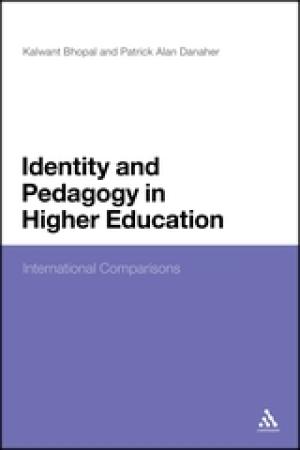
Kalwant Bhopal and Patrick Danaher examine 'race', identity and gender within education and explore the difficulties of relating these concepts to the experience of students in higher education. In drawing together the experience of local and international students in the UK and in Australia, they examine the ways identities are understood and conceptualized within higher education in local contexts and on a global level. They consider the complexity of 'race', gender and identity in relation to education within the context that education continues to be dominated by predominantly white, middle class values and perspectives. Identity and Pedagogy in Higher Education examines the extent to which education as a vehicle for change in the light of the controversial debates surrounding race and gender inequalities. (From the Publisher)
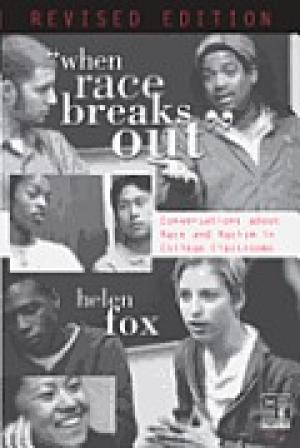
When Race Breaks Out is a guide for instructors who want to promote more honest and informed conversations about race and racism. Based on the author's personal practice and interviews with students and faculty from a variety of disciplines, this book combines personal memoirs, advice, teaching ideas, and lively stories from college classrooms. A unique ¬´ insider's guide to the main ideas, definitions, and opinions about race helps instructors answer students' questions and anticipate their reactions, both to the material and to each other. An annotated bibliography of over 150 articles, books, and videos with recommendations for classroom use is also included. (From the Publisher)
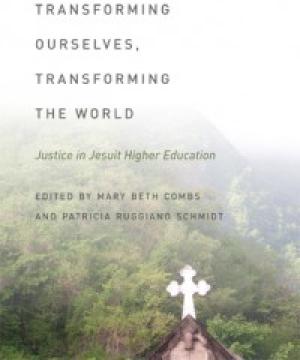
Click Here for Book Review Abstract: Transforming Ourselves, Transforming the World is an insightful collection that articulates how Jesuit colleges and universities create an educational community energized to transform the lives of its students, faculty, and administrators and to equip them to transform a broken world. The essays are rooted in Pedro Arrupe’s ideal of forming men and women for others and inspired by Peter-Hans Kolvenbach’s October 2000 address at Santa Clara in which he identified three areas where the promotion of justice may be manifested in our institutions: formation and learning, research and teaching, and our way of proceeding. Using the three areas laid out in Fr. Kolvenbach’s address as its organizing structure, this stimulating volume addresses the following challenges: How do we promote student life experiences and service? How does interdisciplinary collaborative research promote teaching and reflection? How do our institutions exemplify justice in their daily practices? Introductory pieces by internationally acclaimed authors such as Rev. Dean Brackley, S.J.; David J. O’Brien; Lisa Sowle Cahill; and Rev. Stephen A. Privett, S.J., pave the way for a range of smart and highly creative essays that illustrate and honor the scholarship, teaching, and service that have developed out of a commitment to the ideals of Jesuit higher education. The topics covered span disciplines and fields from the arts to engineering, from nursing to political science and law. The essays offer numerous examples of engaged pedagogy, which as Rev. Brackley points out fits squarely with Jesuit pedagogy: insertion programs, community-based learning, study abroad, internships, clinical placements, and other forms of interacting with the poor and with cultures other than our own. This book not only illustrates the dynamic growth of Jesuit education but critically identifies key challenges for educators, such as: How can we better address issues of race in our teaching and learning? Are we educating in nonviolence? How can we make the college or university “greener”? How can we evoke a desire for the faith that does justice? Transforming Ourselves, Transforming the World is an indispensable volume that has the potential to act as an academic facilitator for the promotion of justice within not only Jesuit schools but all schools of higher education. (From the Publisher)
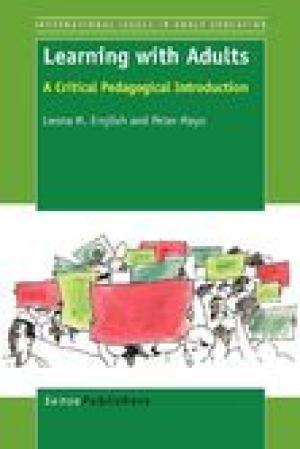
This book is written at a time when our own field of adult education is under assault from a variety of capitalist and neoconservative forces pressuring us... to turn away from the causes of criticality, lifelong learning, and education for freedom. Rather than succumb to these pressures, we have hope that our long term goals of education for life and living can and will be accomplished alongside professional and vocational education. This book offers new insight into what is a very dark moment of our human civilization. From the preface by Dr Carlos Alberto Torres, Professor, GSEIS, Director, Paulo Freire Institute, University of California at Los Angeles The book offers decidedly critical and international perspectives on various aspects of adult education, especially on state, citizenship and neoliberal policies. Critical in both content and method, it is at the same time the part of the collective work needed to advance the Belém call to action by furthering awareness and capacity in the field of adult education. Dr Katarina Popovic, Professor,Universität Duisburg-Essen, University of Belgrade & DBB International, In the midst of diminishing resources and growing inequalities, English and Mayo provide an incisive and much needed critique of adult education in ways that highlight not only its historical and philosophical roots but also its major significance to the practice of democracy. In a direct challenge to the neoliberal accountability craze, Learning with Adults offers a rigorous political reading of the field—one that systematically challenges oppressive educational policies and practices, while affirming an emancipatory vision of civic engagement. Truly an informative treatise that sheds new light on the education of adults. Dr Antonia Darder Professor & Leavey Presidential Endowed Chair in Education Loyola Marymount University Los Angeles Leona English and Peter Mayo challenge hegemonic assumptions and ideas, while offering a constructive alternative based on the principle of working with learners and not just for them. Their analysis is accessible enough for newcomers to the field, while the authors’ wide-ranging coverage and radical approach provide refreshing and challenging messages for the most experienced adult educator. Up-to-date, genuinely international and passionately committed, Learning with Adults is a great book. (From the Publisher)
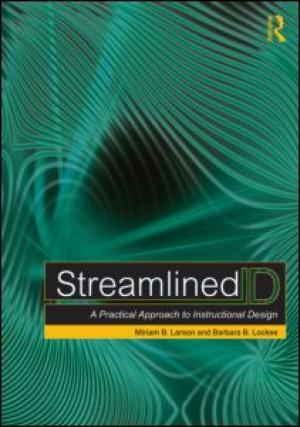
Streamlined ID: A Practical Guide to Instructional Design presents a focused and generalizable approach to instructional design and development – one that addresses the needs of ID novices, as well as practitioners in a variety of career environments. Emphasizing the essentials and "big ideas" of ID, Streamlined ID presents a new perspective – one that aims to produce instruction that is sustainable, optimized, appropriately redundant, and targeted at continuous improvement. The book features an enhanced version of the classic ADDIE model (Analysis, Design, Development, Implementation, and Evaluation) that emphasizes the iterative nature of design and the role of evaluation throughout the design/development process. It clearly lays out a systematic approach that emphasizes the use of research-based theories, while acknowledging the need to customize the process to address a variety of pedagogical approaches: Instructivist, Constructivist, and Connectivist. The book opens with an overview of the basics of ID and each subsequent chapter describes major activities in the ID process with step-by-step instructions and tips for streamlining the process. Numerous job aids serve to maximize the efficiency and effectiveness of your design efforts. Each chapter highlights key concepts and provides additional exercises and assignments based on the work of Benjamin Bloom. Streamlined ID is an ideal reference guide for optimizing professional practice. (From the Publisher)

Click Here for Book Review Abstract: Practice, praxis, traineeship, internship, or practicum - these are all names for the specific arrangements where students from universities engage in real life experiences; in arrangements where they leave the secure tranquility of the university and enter into the chaotic world of work. Practicum is a very good way of learning, and it can be very interesting for all parties involved. The students appreciate it, even if it is cumbersome, frustrating, and requires a lot of work - work that is different from what they know in their previous encounters with the education system. This book asks a simple question in relation to practicum, paraphrasing Tom Paxton's song: What Did You Learn in the Real World Today? The question is asked without the irony of Paxton's original one, in order to find out what is learned in the practicum. The chapters in this book shed some light on this simple question. The question is confronted from philosophical and pedagogical perspectives, while investigating a number of cases of students' learning experiences in the real world. (From the Publisher)
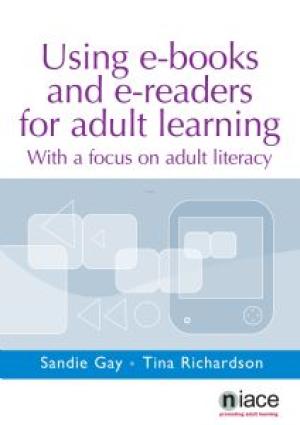
Click Here for Book Review Abstract: With e-books increasingly becoming an everyday and high-profile technology, how can they be used most effectively to help develop literacy skills, cultivate a love of reading, provide greater accessibility to texts for all, and offer portable access to a vast range of resources? Specifically written with the adult education sector in mind, this invaluable and straightforward guide will take the reader through the advantages and effective features that e-books have to offer. The text covers the necessities in e-book technologies: how to take advantage of the features that e-books offer adult learners * the options available, including dedicated e-readers, tablets, and smartphones * the costs * technical and management issues * real-world case studies of current uses and experiences in adult learning settings * current research and projects * pointers on the innovative uses of e-book technologies. The book also includes a chapter on useful links. It is a timely, original, and practical guide to a popular and increasingly accessible technology, with a specific focus on applications to adult learning. (From the Publisher.)
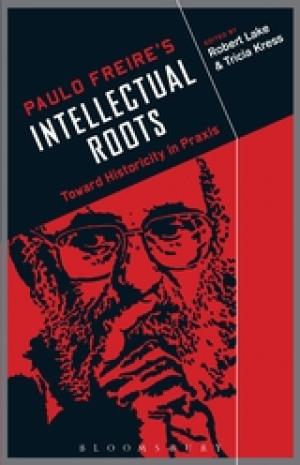
Click Here for Book Review Abstract: Paulo Freire's critical pedagogy has had a profound influence on contemporary progressive educators around the globe as they endeavor to rethink education for liberation and the creation of more humane global society. For Freire, maintaining a sense of historicity, that is, the origins from which our thinking and practice emerges, is essential to understanding and practicing education as a means for liberation. Too often, however, critical pedagogy is presented as a monolithic philosophy, and the historical and intellectual roots of critical pedagogy are submerged. Through a compilation of essays written by leading and emerging scholars of critical pedagogy, this text brings history into the present and keeps Paulo's intellectual roots alive in all of us as we develop our praxis today. (From the Publisher)
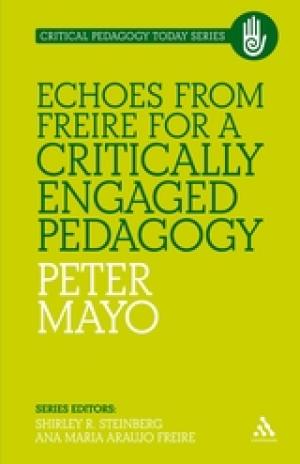
Click Here for Book Review Abstract: In this concise and accessible text, Peter Mayo outlines some of the major concepts in Freire's praxis. In pursuit of a critically engaging pedagogy, Mayo compares Freire's work with a range of other thinkers and educators, including Lorenzo Milani, Antonia Darder, John Dewey, Margaret Ledwith, Antonio Gramsci, and Henry Giroux. Chapters in the book include discussions of the State's role in education - specifically higher education; a critical analysis of the dominant discourse in education centering on 'competences' and the type of slant this discourse takes; a study of adult education through a Freirean lens; an historical view of Nicaragua's Freire-inspired literacy and popular education campaigns of 1980; a fresh perspective on the role of social movements in the contexts of social transformation; a new analysis of the relevance of Freirean concepts for transformative research, and an exploration of educators as intellectuals and social actors. The result is a compelling study of how Paulo Freire's writings continue to resonate around the world, and of how we must continue to apply and interpret them anew. (From the Publisher)
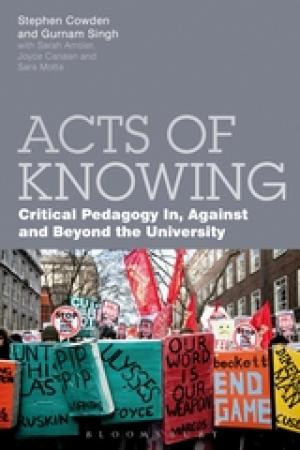
Click Here for Book Review Abstract: This provocative book's starting point is a deep and profound concern about the commodification of knowledge within the contemporary university. Acts of Knowing aims to provide readers with a means of understanding the issues from the perspective of Critical Pedagogy; an educational philosophy which believes that 'knowing' must be freed from the constraints of the financial and managerialist logics which dominate the contemporary university. Critical Pedagogy is important for three key reasons: it conceptualises pedagogy as a process of engagement between the teacher and taught; secondly that that engagement is based on an underlying humanistic view about human worth and value; and thirdly that the 'knowing' which can come out of this engagement needs to be understood essentially as exchange between people, rather than a financial exchange. Cowden and Singh argue that the conception of education as simply a means for securing economic returns for the individual and for the society's positioning in a global marketplace, represents a fundamentally impoverished conception of education, which impoverishes not just individuals, but society as a whole. (From the Publisher)